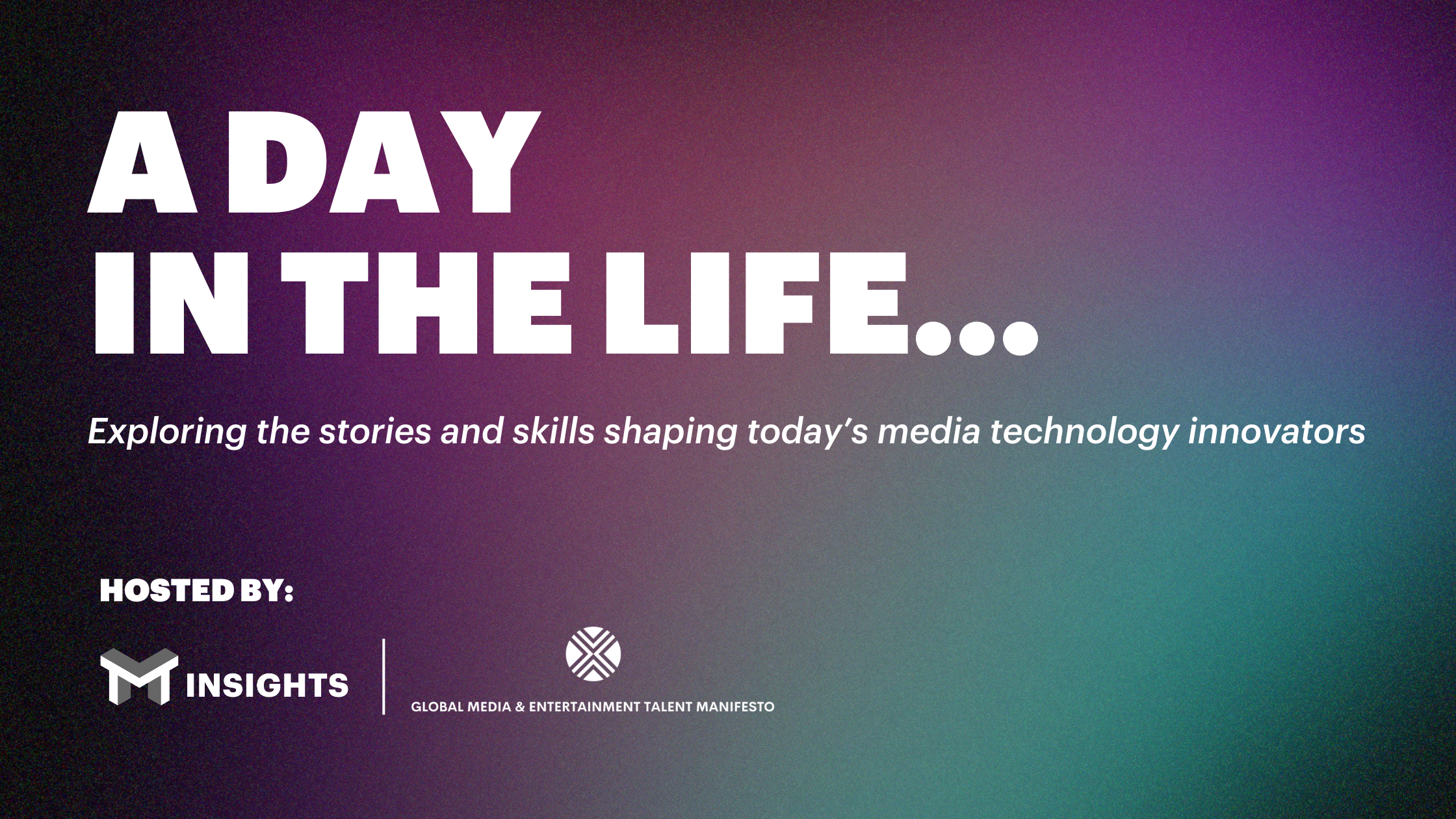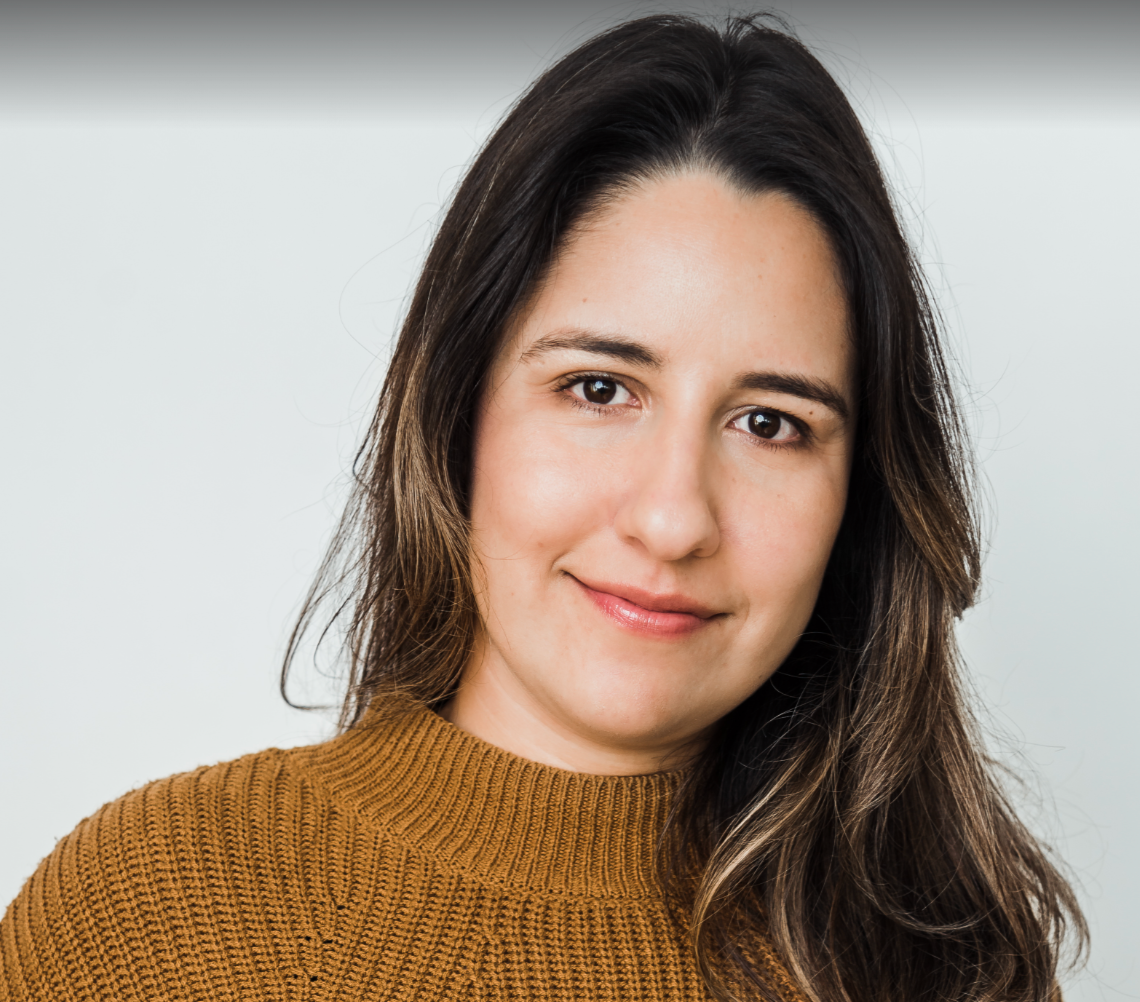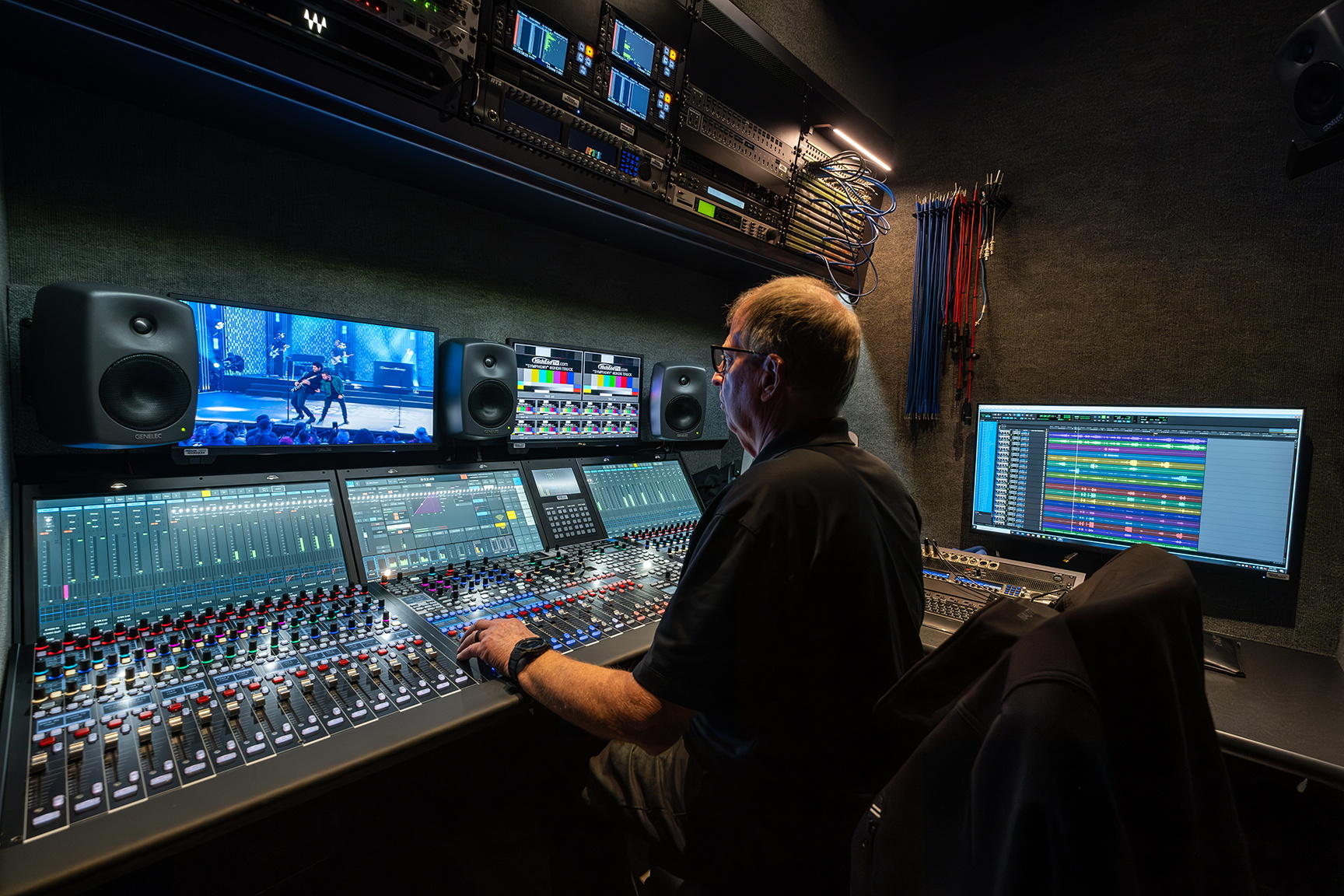TMT Insights: A Day in the Life Series
From career development to recruiting new talent: embracing change and taking risks are the keys

The second edition of TMT Insights’ “A Day in the Life” series highlighting skills in Media & Entertainment (M&E) focuses on Denise Soto, Director of Product & Quality Assurance at TMT Insights. Denise discusses what sparked her creative interest in media technology and production, the evolution of QA, the balance between hard skills and transferable skills, and the career advice she’d give to her younger self.
What sparked your interest in this industry and led you to a career in M&E?
My first M&E job was at Deluxe in a quality assurance (QA) role. It was a temp-to-hire job that I thought would be a perfect parallel to my college studies, which focused on web design and interactive media.
As I started getting more into the job, my interest in media technology deepened. I’d always enjoyed watching DVDs without ever giving any thought to what actually went into creating a menu or chapters, or how they added bonus material. I was intrigued by the blending of technology and creativity, and I almost found it hard to believe I was getting paid to watch cool things like The Simpsons and other favorites of mine while QA’ing subtitles and audio tracks. I started asking more questions since there were always new technologies to learn, and that’s never stopped.

Denise Soto
Director of Product & Quality Assurance, TMT Insights
With 14+ years of experience at Pixelogic Media and Deluxe Entertainment, Denise Soto blends expertise in global media operations, quality assurance, and product management. Passionate about design and technology, she leads product development from ideation to launch, collaborating across teams to ensure timely, high-quality delivery. Denise also directs QA efforts, ensuring products meet client vision, reliability, and performance standards.
Your current role encompasses both Product Management and QA, two groups within the organization that collaborate extensively with one another. How has QA evolved either in terms of the skills needed or the use of technologies that weren’t available when you started?
Over time, I took on more responsibilities like overseeing all aspects of product development, ensuring timely delivery, compliance with requirements, and ensuring high-quality delivery and performance. This led me to foster a unified approach to product across all stakeholders, aligning requirements and defining clear and measurable acceptance criteria for the QA team.
When I started, QA was all about manual testing. Now as we have evolved, there are so many new types of tests to conduct and issues to look for that it would be impossible to do it all manually. There could never be enough resources. There has definitely been a big shift to everything being automated using new frameworks.
Automation frees us up from time- and labor-intensive tasks, and it also lets people refocus their energy and creativity on more higher-level activities. I actually have time to sit back and evaluate more complex scenarios, such as thinking about where and how we can use automation elsewhere to make sure our workflows are functioning as expected from a user perspective—things that AI can’t do to help us get more bang for our buck.
What tools are most useful to you in your role?
We use Cypress [a cloud-based testing automation tool] to automate daily tasks like checking that all our filters are working properly. The amount of time that it would take a QA tester to manually click each filter would be substantial.
Cypress has a robust framework that lets us code in different languages, including JavaScript, to automate API testing without us having to do such a heavy lift. We can use the framework to say, ‘Hit these endpoints and then pass on certain information to make sure we get the expected results.’ We can easily see all the test cases that ran, which were successful, and which were not without us having to do anything other than say ‘run this test.’
If you're hiring for your current job now, what would you look for in a potential new hire?
QA and product management have changed from where they were a decade ago. There was always a heavy focus on traditional skill sets; does your resume match line for line with the job description? Now we're finding that just isn’t enough anymore. We're actually shifting towards emphasizing more transferable skills. For example, is this person able to think critically and make the right decisions about the best path forward? Those are job functions that can never be automated.
The “hard” and transferable skills are now almost equal. In some cases, transferable skills are more important because they can help us form a better overall assessment of a candidate. Casting that wider net also deepens your talent pool to include a larger and more diverse field of candidates. We're able to find talent that would have gone unnoticed or not even been considered because they didn’t meet a particular qualification, and I do see this occurring more frequently within the M&E industry.
What's been the single biggest tech shift you've seen?
I’m probably not alone in saying AI has had the greatest impact on both product management and QA. A few years ago, nobody would touch it. Now everything has AI. We’ve used Jira [a project management tool from Atlassian] for a while, and before it was AI-based, we had to create long and complicated JQL queries when doing a search. Now that it’s AI-based, it’s simply a matter of saying, ‘Show me all the tickets that were created last year,’ and it will automatically write that query in the JQL format and return the results you need. Then, looking ahead, I foresee all M&E workflows using AI at least in an informative way, and we can already see that trend happening with our current clients.
Have you brought new skills to your job now that weren’t always a direct requirement for your role?
Definitely. I studied web design and interactive media, learning HTML and CSS design and editing without even knowing that I’d find a way to apply these skills later in my professional life. Now in my product role, if I need to show a developer how we want to do something, I can tweak the HTML code myself to show them what I expect. Some of our clients focus on editing workflows, and the fact that I know Adobe’s Premiere has been super helpful for me to understand what they are trying to accomplish. So never stop learning new skills. You never know when they’ll come in handy.
If you could meet 2010 Denise, knowing what you know now, what advice would you give her?
Embrace challenges, take risks, and continue learning and growing in your field.
The biggest challenge for most people is stepping out of their comfort zone and welcoming new experiences. I think I did a good job at that, but it would definitely be something that I would reinforce and focus on more if I were to do it over again.
Staying stagnant is the worst thing you can do for yourself.
TMT Insights is a professional services and software development company delivering leading capabilities in the digital supply chain, including media content management, cloud technology, and SaaS/D2C experiences to global media companies. Combining unmatched experience and specialized skills within the media & entertainment, digital & cloud technology space, our team offers industry leading services such as strategy and CXO advisory, product ideation & innovation, cloud transformation, process re-engineering and development to our partners. As early adopters of new technologies, we embrace the power of collaboration and work with our partners to combine our guidance with action to further drive efficiency, value, and scale to their communities. www.tmtinsights.com
If you’re an M&E professional that is interested in participating, please submit your request for consideration at https://tmtinsights.com/contact-us.
Get the TV Tech Newsletter
The professional video industry's #1 source for news, trends and product and tech information. Sign up below.
